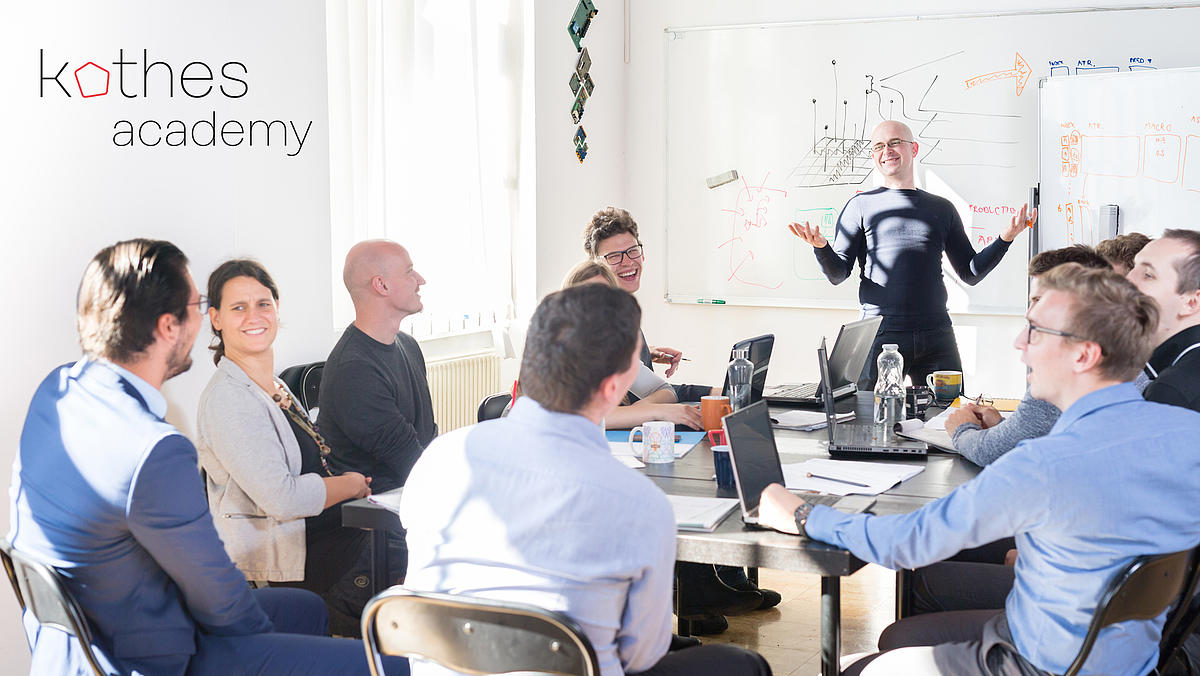kothes grew up, so to speak, with its seminars. One of the first statements we made almost fifteen years ago was that we intend to communicate to our customers everything we do. We neither hide our expertise, nor ourselves, and thus always provide our customers with the opportunity to acquire new knowledge in order to independently solve their pressing challenges – or to accomplish some of these tasks together with us.
Now there are the "long-distance runners" in our industry; real marathon topics like "Creating Manuals", "Risk Assessments", etc. However, it would be strange in the long run if we were to preach Documentation 4.0 on the one hand, but not tell anyone what this means for their daily business, and what kind of work is to be done by the Technical Editors, by their Managers, but also the Project and Product Managers.
A look at our kothes academy quickly explains: On one hand, we are increasingly talking about "concepts". Visualisation-oriented, information-oriented, or simply user-oriented concepts. Why? Because we see that our entire professional world in Technical Documentation has just been revolutionised. We no longer just write; we also manage information. We're becoming more IT-minded, so we must have an overall understanding, in order to work properly in detail. This requires, especially in the initial phase of this transformation, good, well-coordinated, and sometimes even difficult-to-develop concepts. Just getting straight down to work was never really effective – now this simply no longer makes sense. So we sit down with you and report on what currently works, what is still in its infancy, and what you should expect today, so that tomorrow, everything with documentation will be running smoothly. So therefore, several "concept" topics. The second focus, which is currently developing rapidly, is technical aids for optimised documentation development and publication – also commonly referred to as "Tools". Here are, for example, Content Delivery Portals, which are mostly within the focus of Technical Documentation, but also quite practical Tools such as Translation Memory Systems, whose trained use holds immense potential with respect to time-savings. We also report on best practices and discuss the best methods with you. Finally, with the topic of "Development of Key Performance Indicators in Technical Documentation", we cover a classic management topic that deals with the business aspects of Technical Documentation beyond the daily business, and looks at our world "from the outside" – with very exciting results.
In brief: We simply remain true to ourselves and share our knowledge with you. For us it's fun; maybe for you as well. See you at the kothes academy.

